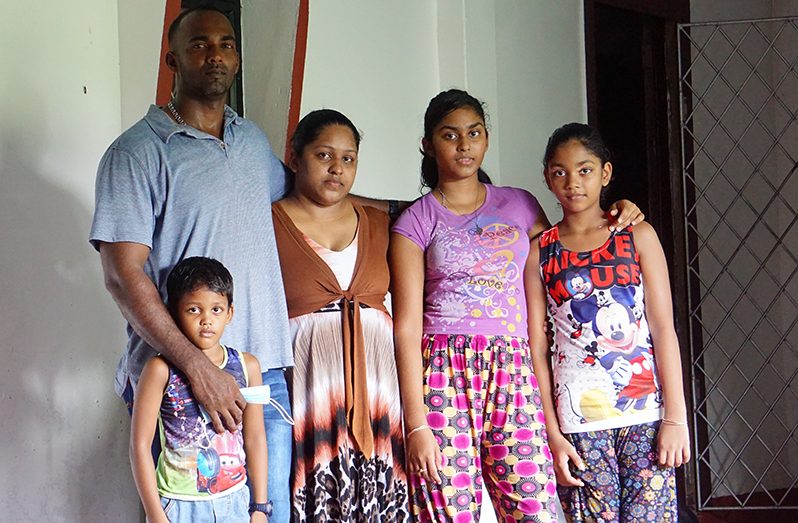For Mahase Budhram, a large scale farmer who employs the young men on Hog Island, Essequibo River, he has never taken a day off as a farmer in all his years of the profession.
The 41-year-old is a resident of Eastern Hog Island, Essequibo River and plants watermelons, pumpkins, corn and ground provisions.
He is a victim of flooding and erosion which has destroyed most of his crops during the last spring tide about two weeks ago when the island was inundated due to severe high tide.
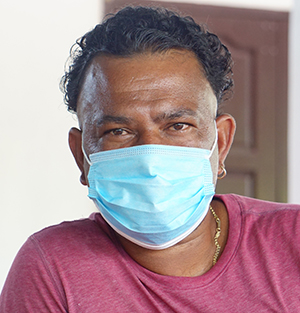
Budhram disclosed that there is no sea defence to surround the island, as such, they are prone to flooding and erosion. Over the years he has seen large portions of the island being swallowed up by the ocean.
He reported that if some large boulders can be placed around the island it will reduce the chances of flooding and it will serve as a ‘grind’ to also prevent further erosion of the island.
The farmer told the Pepperpot Magazine that he is originally from Wakenaam, another island in the Essequibo River, but relocated to Hog Island with his family when he was still a boy.
The father of four stated that life is fair but if they get some help from the authorities to dig some internal canals and trenches to drain the water off the land, it will be good for them.
“I would sell my produce in a large quantity to buyers at Parika wharf after transporting it via boats and at times I would make a profit others I would carry losses but it is the only work I know to do to upkeep my family,” he said.
Budhram disclosed that the spring tide is every fortnight and one comes high and the other low.
He pointed out that they don’t have the convenience of a health post or a school so they have to travel via boat everywhere and it is very costly and they do not have access to many things yet they survive.
Returning to Guyana to start life all over again
The Pepperpot Magazine also met Gaitree (only name) who was with her Spanish daughter-in-law, Naomi Alejandra, with four small children.
Naomi Alejandra stated that she used to live in Venezuela but due to the country’s economic hardship she was forced to return to Guyana, her husband’s place of birth.
She added that her husband is from Hog Island, Essequibo River and they constructed a small makeshift house and he works as a labourer on a farm.
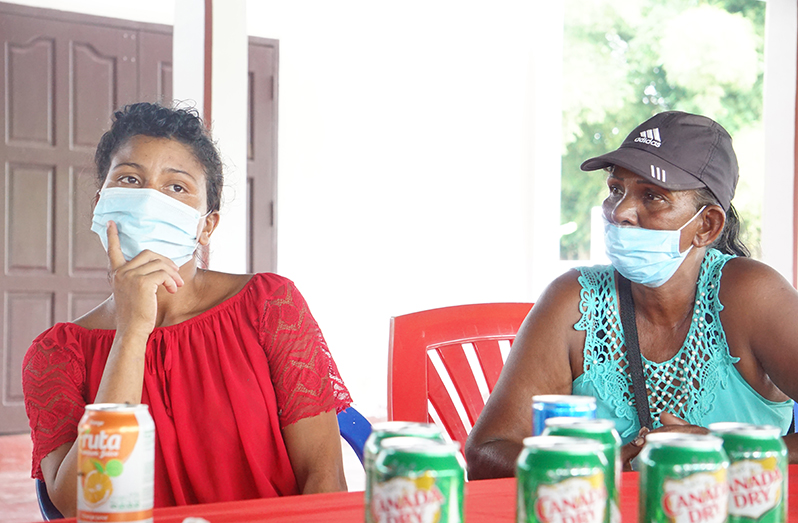
These women said they are thankful for the government’s COVID-19 cash grant relief of $25,000 per household and they used that money to buy much needed groceries.
Alejandra and her family returned to Guyana two years ago and they had to re-start their life while Gaitree is doing domestic work on the island to bring in an income to her home.
The fisherman
Meanwhile, another local, Ramraj Narine told the Pepperpot Magazine that he is on the island, living and working for the past eight years.
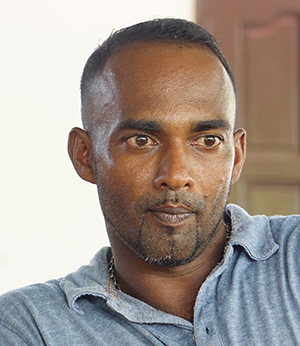
He is from Tuschen, East Bank Essequibo and relocated to Hog Island where he is fisherman and is rearing some chickens.
The 30-year-old stated that he is also planting some bananas and plantains to complement his income as a self-employed person.
“Right now I don’t have my own boat and engine and I am working with somebody and it is not easy so if I get my own boat and engine it will be better and I am working towards achieving that,” he said.
Damodar Budhram, a farmer
Meanwhile, 40-year-old, Damodar Budhram told the Pepperpot Magazine that he lives on Eastern Hog Island and has a farm.
The father of one reported that he has in his employ most young men of the island and some newcomers since workers would come and go.
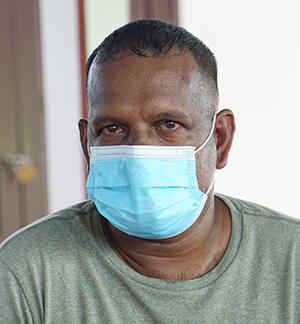
Presently, he has about a dozen employees, who assist him on the farm and he has nine houses on the island where he provides living accommodation for his workers, so they live and work there.
Budhram added that he cultivates 20 acres of plantains, 10 acres of watermelons, another 10 acres of coconuts and rear cows and sheep.
“Due to flooding many of the sheep died because of the water and they are often overwhelmed with sand flies which would eat away around the eyes of the sheep,” he said.
Farmhand
Gadraj (only name given) called “Duchee” disclosed that he is a farmhand on Damodar Budhram’s farm and has been on the island for the past 13 years.
He reported that he functions as the foreman, to supervise workers and they have a lot of challenges in framing since there are no internal drains or canals or sea defence to prevent flooding and erosion.
The father of three
Harrychand Khelwar is also a resident of Eastern Hog Island, Essequibo River and is the father of three children.
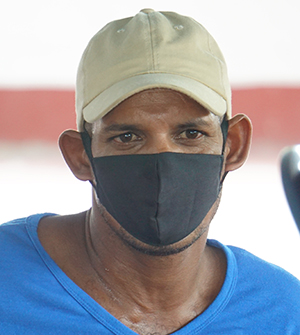
He disclosed that life on the island isn’t exactly easy because they have a lot of challenges and if one has a generator it is $2,000 a night for gasoline to operate it.
To go anywhere is by boat and the purchase of gasoline is heavy on the pockets of regular people on the island, who are small farmers.
Often people would go to the channel in the river and source water to drink when it doesn’t rain since they cannot afford to buy drinking water.
Meats for household consumption must be preserved since there is no way to freeze it on a daily basis.
Khelwar added that most people would go to Parika to do their shopping and sell their produce and based on the tide they would be able to move around via boats.
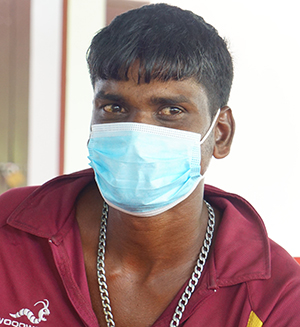
“If there is an emergency and the tide is low, the boat cannot get out to the water for people to get medical attention and especially at nights it is dangerous to travel on the river,” he said.
For the past nine years he has transported his three children to a school on West Coast Demerara and it is costly since the primary school on the island is abandoned and overrun by bushes.
“Due to the many hardships on this island a lot of people left to find a better life because living here means hard work and with limited resources so people opted to go to greener pastures to make life,” he said.




.png)


